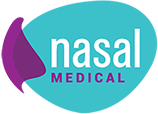It’s February 2021, and we are 11 months on from the beginning of a Global Pandemic, and while the year is promising with the arrival of vaccines, we feel more tired now than ever. Covid Exhaustion is real and we are feeling it every day. We often speak about sleep in Nasal Medical HQ (i.e. Zoom calls), and more specifically, our lack of sleep, and we are always looking for ways to improve.
As we prepare to launch our new Snore Watch App this year, (stay tuned!), we thought that we really should practice what we preach and try to have a better night’s sleep.
What is Sleep Hygiene?
Sleep Hygiene is defined by the Sleep Foundation as the different practices and habits necessary to have better sleep quality at night and alertness during the day.
We all know how important sleep is, and we have all experienced, more times than we’d like, how debilitating lack of sleep can be to our mental and physical health. While getting a good sleep every night sometimes is just not possible, (new baby, insomnia, work/life commitments etc.), it is important to be aware of ways we can at least try to get a better sleep.
We all have practices and habits that we carry out every day: the morning tea or coffee, writing to-do lists, or going to the gym, but somehow, when it comes to sleep, the majority of us let it take it’s own course. There is no set plan after getting dressed for bed and brushing our teeth – at a push we read a few pages of a book, but it’s probably far more likely that we scroll Facebook or Instagram.
I know, speaking for myself, that I don’t have any type of set routine at night outside the usual dressing/moisturizing/teeth brushing. To be honest, before I deep-dived in to the whole concept of Sleep Hygiene, I didn’t really think there was too much else I could/should be doing – I just wasn’t a ‘great sleeper’ and accepted however many hours I was luckily enough to clock up every night. But, like everything when getting older, my usual practices are becoming a little harder, and I’m not able to function as well as I used to without a proper sleep.
Why is Sleep Hygiene Important?
If you’ve ever had a bad night’s sleep then you can answer this one. Sleep deprivation/poor sleep is torturous. Sleep deprivation or poor quality sleep can affect your entire mood, making every day tasks difficult, and alertness to decrease to very low levels. Long-term sleep deprivation can cause accidents on the road as reaction is considerably lower, and can put you at risk for heart disease, high blood pressure and diabetes.
5 Sleep Hygiene Tips you can start using TONIGHT
- Figure out how much sleep you need to function optimally the following day. We spoke about this in more detail in our Sleep Debt blog you can read that HERE.
- Try and go to bed at the same time every night. This is harder than it sounds, but test it for one or two weeks and see if it becomes easier to drift off as your brain will know when to wind down.
- Sleep in a cool room- hear us out! Research has discovered that your body’s core temperature needs to drop in order to initiate sleep. If your room is too hot your body has to work hard to cool down, causing you to wake during the night. Turn the heat down in your room, and stay warm with a breathable duvet for a better sleep!
- Don’t consume caffeine approx 3 hours before you sleep – yes, this includes tea! This could change depending on how caffeine works in your body, but, again, test it for a week and see if it makes a difference.
- Turn off /silence electronics 1 hour before bed to allow your mind to wind down. Set your alarms, have one last scroll, and turn your phone on silent beside your bed 1 hour before you plan to go to bed.
So, there you have it: Sleep Hygiene in a very large and long-winded nutshell. Any tips that we missed? Know someone who would benefit from developing good Sleep Hygiene? Then please tag them, or, better yet, share this post on Facebook – it would help us out so much!
Until next time, stay safe & wash your hands!
Team Nasal Medical
